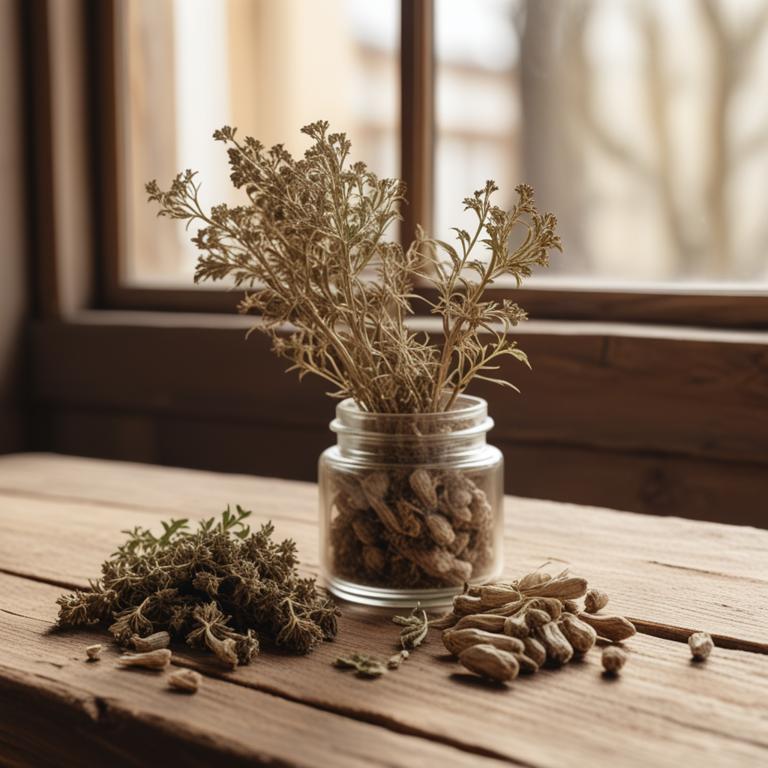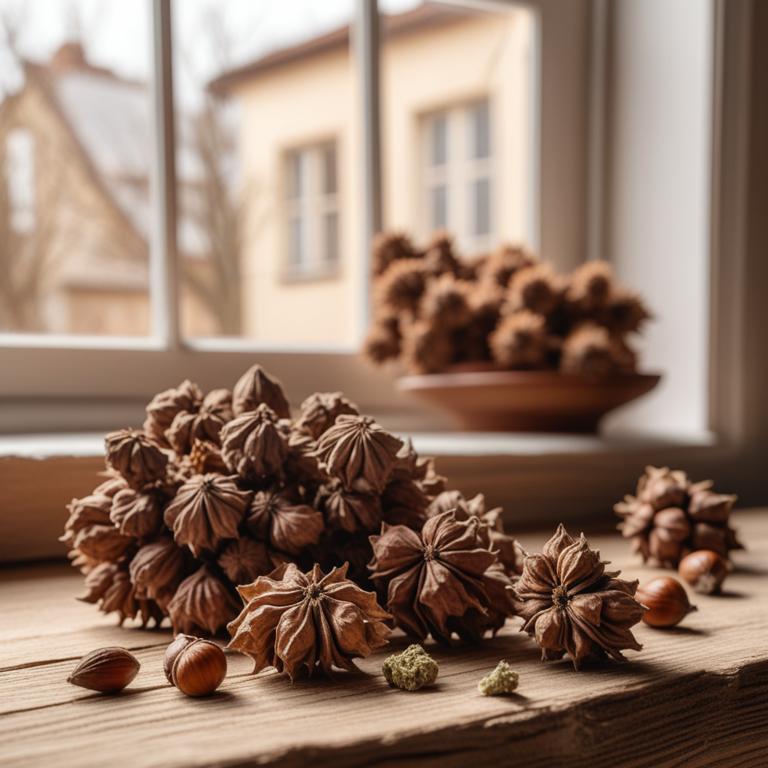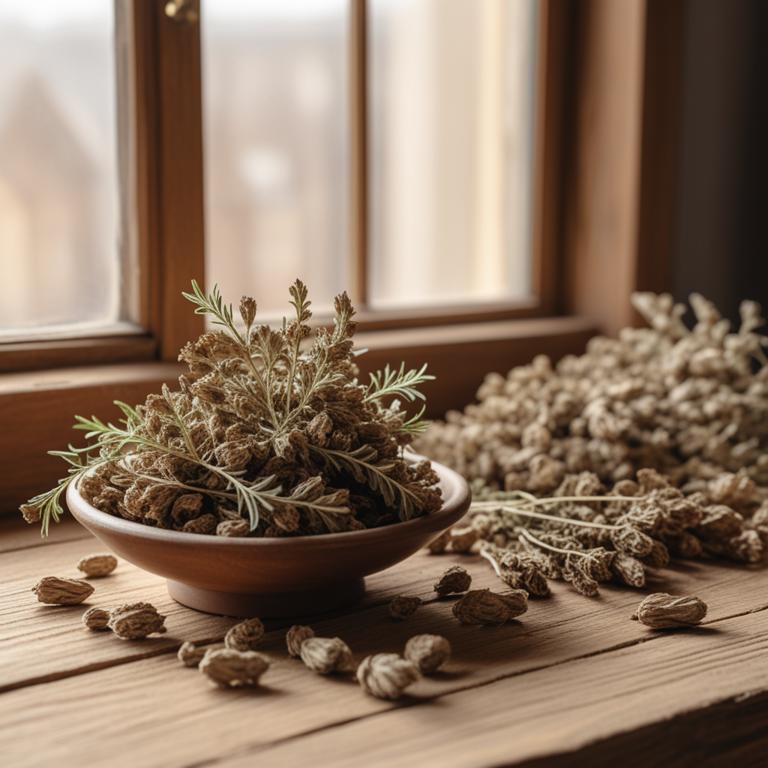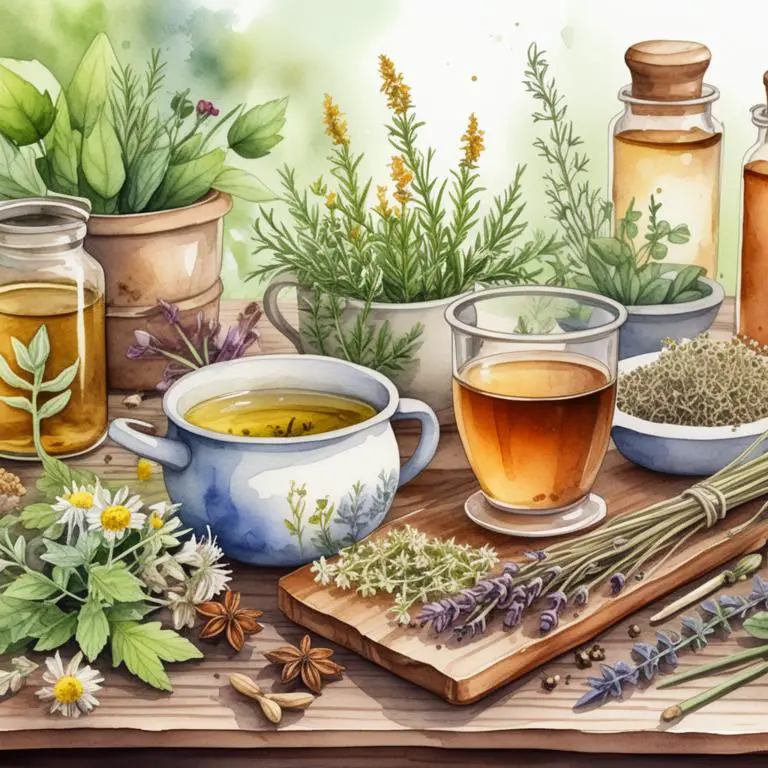Updated: Dec 1, 2024
Causes and Remedies of Hiatus Hernia Using Medicinal Herbs
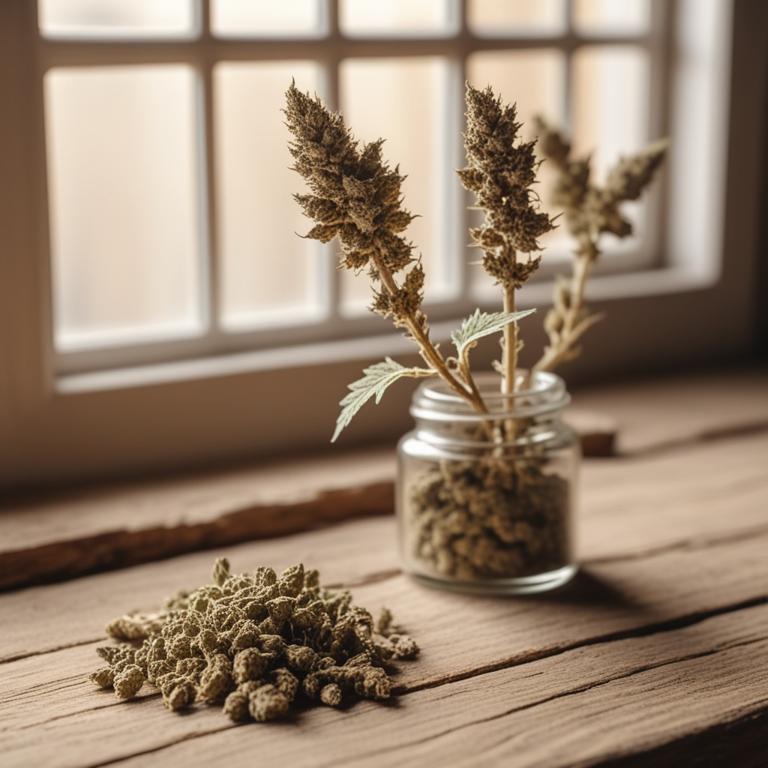
Hiatus hernia is a condition where part of the stomach bulges up into the chest through an opening in the diaphragm.
This can cause uncomfortable symptoms like heartburn, acid reflux, and difficulty swallowing, making everyday activities a challenge. A hiatus hernia can be caused by a combination of factors, including a weak diaphragm, obesity, and straining during bowel movements or coughing. Herbal remedies can help alleviate the symptoms of hiatus hernia. Herbs like licorice root, slippery elm, and marshmallow root have anti-inflammatory properties that can soothe the stomach and reduce inflammation.
Licorice root, in particular, has been shown to improve digestive health and reduce symptoms of heartburn and acid reflux. To use these herbs, you can make teas by steeping dried roots in hot water. You can also take herbal supplements in capsule or tablet form. Slippery elm and marshmallow root can be made into a soothing tea by mixing their dried roots with hot water. Licorice root tea can be made by steeping a tablespoon of dried licorice root in a cup of hot water.
Some people also find relief by consuming these herbs in food form, such as licorice root powder added to meals or slippery elm capsules taken after meals.
Table of Contents
- What triggers the occurrence of hiatus hernia?
- What benefits can people with hiatus hernia expect from using herbs?
- What are the primary medicinal herbs for treating hiatus hernia?
- Which herbal remedies are most widely used to manage hiatus hernia?
- Which herbs are not recommended for people with hiatus hernia?
- FAQ
What triggers the occurrence of hiatus hernia?
The main causes of hiatus hernia are often related to the way the stomach and esophagus are positioned in the chest.
One of the main causes is obesity, which puts extra pressure on the stomach and can cause it to bulge up into the chest through the opening in the diaphragm, called the hiatus. This extra pressure can be due to the weight of excess fat around the stomach area. Gastroesophageal reflux disease (GERD) is another common cause of hiatus hernia. In GERD, the muscle that separates the esophagus and stomach, called the lower esophageal sphincter, doesn't close properly.
This allows stomach acid to flow back up into the esophagus, and the pressure from this acid can cause the stomach to bulge up into the chest. Hiatal hernia type II is a type of hiatus hernia where the stomach bulges up into the chest through the hiatus, but not all the way. This can be due to a weak spot in the diaphragm or a large hiatus. The stomach can still cause symptoms like acid reflux and difficulty swallowing. Hiatal hernia type III, also known as a large hiatal hernia, is a more severe type of hiatus hernia where the stomach bulges up into the chest and can even extend into the mediastinum, the space between the lungs.
This type of hernia can be due to a large hiatus or a weak spot in the diaphragm, and it can cause more severe symptoms like severe acid reflux, difficulty swallowing, and chest pain.
What benefits can people with hiatus hernia expect from using herbs?
Using herbs for hiatus hernia can be a helpful approach for managing symptoms.
These herbs have anti-inflammatory properties, which can help reduce swelling and discomfort in the stomach area. They can also help relax the muscles in the stomach and lower esophageal sphincter, making it easier for food to pass through.
Some herbs may also help reduce acid production in the stomach, which can alleviate symptoms like heartburn and acid reflux. Additionally, certain herbs have a soothing effect on the digestive system, promoting a sense of calm and reducing nausea and discomfort.
By reducing inflammation and promoting relaxation, these herbs can help alleviate symptoms and improve quality of life for people with hiatus hernia.
What are the primary medicinal herbs for treating hiatus hernia?

If you're dealing with a hiatus hernia, you might want to consider using some herbs to help manage your symptoms.
For example, Zingiber officinale, or ginger, is known for its anti-inflammatory properties, which can help reduce pain and discomfort in the digestive tract. Ginger also has a natural relaxant effect on the muscles, which can help ease the symptoms of a hiatus hernia. Glycyrrhiza glabra, or licorice root, is another herb that can be beneficial. It has a soothing effect on the digestive system, reducing inflammation and promoting healing. Licorice root also helps to balance the stomach acid, which can help alleviate the symptoms of a hiatus hernia.
Foeniculum vulgare, or fennel, is a natural carminative, which means it helps to relieve gas and bloating in the digestive system. This can be particularly helpful if you're experiencing discomfort or pain in the chest or abdomen due to a hiatus hernia. Curcuma longa, or turmeric, contains a powerful compound called curcumin, which has potent anti-inflammatory properties. Curcumin can help reduce inflammation and pain in the digestive tract, making it a useful herb for managing the symptoms of a hiatus hernia. Lastly, Cinchona officinalis, or cinchona bark, contains quinine, a natural compound that can help reduce inflammation and pain. Quinine also has a mild antacid effect, which can help balance the stomach acid and alleviate the symptoms of a hiatus hernia.
These herbs can be consumed as teas, capsules, or added to food, and should be used under the guidance of a healthcare professional.
Which herbal remedies are most widely used to manage hiatus hernia?

Herbal preparations can be a good option for people with hiatus hernia.
A decoction is a liquid preparation made by boiling herbs in water. Ginger decoction is helpful because it soothes the stomach and reduces inflammation. It also helps to relieve nausea and vomiting, which are common symptoms of hiatus hernia. A tincture is a concentrated liquid extract of herbs. Slippery elm tincture is good because it protects the mucous membranes in the stomach and esophagus, helping to prevent acid reflux and heartburn. This can reduce discomfort and pain associated with hiatus hernia.
A capsule is a small pill that contains dried herbs. Capsules made from herbs like aloe vera and licorice root can help to soothe and calm the digestive system, reducing inflammation and discomfort in the stomach and esophagus. An infusion is a liquid preparation made by steeping herbs in hot water. Peppermint infusion can help to relax the muscles in the stomach and reduce spasms, which can put pressure on the hiatus and worsen symptoms. Herbal tea, made by steeping herbs in hot water, can also be beneficial. Chamomile tea, for example, can help to calm the stomach and reduce inflammation, promoting a sense of relaxation and reducing discomfort.
Each of these preparations has its own unique benefits and can be used in different ways to manage hiatus hernia symptoms.
Additional Resources:
Which herbs are not recommended for people with hiatus hernia?
If you have a hiatus hernia, it's best to be careful with some herbs.
Piper nigrum, for example, is commonly known as black pepper, and while it's safe to use in small amounts, excessive consumption can trigger heartburn and acid reflux, which can be painful for people with hiatus hernia. Rosmarinus officinalis, or rosemary, is another herb to use with caution. It can relax the muscles in the stomach, which may worsen symptoms of hiatus hernia.
Aristolochia clematitis, a plant used in some traditional medicines, contains a chemical that can damage the kidneys and liver, and it's not recommended for people with hiatus hernia. Capsicum annuum, or chili pepper, is known to irritate the stomach and can cause inflammation, which may exacerbate hiatus hernia symptoms. Similarly, Lavandula angustifolia, or English lavender, can also irritate the digestive system and trigger acid reflux in some people.
It's best to talk to your doctor or a qualified healthcare professional before using any of these herbs, especially if you're unsure about their effects on your condition.
FAQ
Are there any specific herbs that can prevent hiatus hernia?
Ginger and fennel are herbs that may help soothe hiatus hernia symptoms.
Ginger's anti-inflammatory properties can calm stomach acid, while fennel's carminative properties can ease digestive discomfort.
Some studies suggest that consuming these herbs in moderation may provide relief for people experiencing hiatus hernia symptoms, such as heartburn and chest pain.
Is it safe to use herbal remedies for hiatus hernia during pregnancy?
Using herbal remedies for hiatus hernia during pregnancy is not recommended.
Some herbs can cause stomach problems, and others may interact with medications you're taking. Your baby's health is at risk if you consume anything that can harm you.
Stick to gentle, pregnancy-safe foods and avoid anything that could worsen your condition.
Are there any herbs that can reduce the frequency of hiatus hernia?
Some people find that taking ginger and chamomile can help soothe the stomach and reduce discomfort from hiatus hernia.
Ginger has anti-inflammatory properties, which may help calm the digestive system, while chamomile's calming effects might ease stress and anxiety that can exacerbate symptoms.
These herbs may also help with digestion and alleviate heartburn.
Related Articles

Difficulty Swallowing: Causes, Remedies, and Medicinal Herb Options
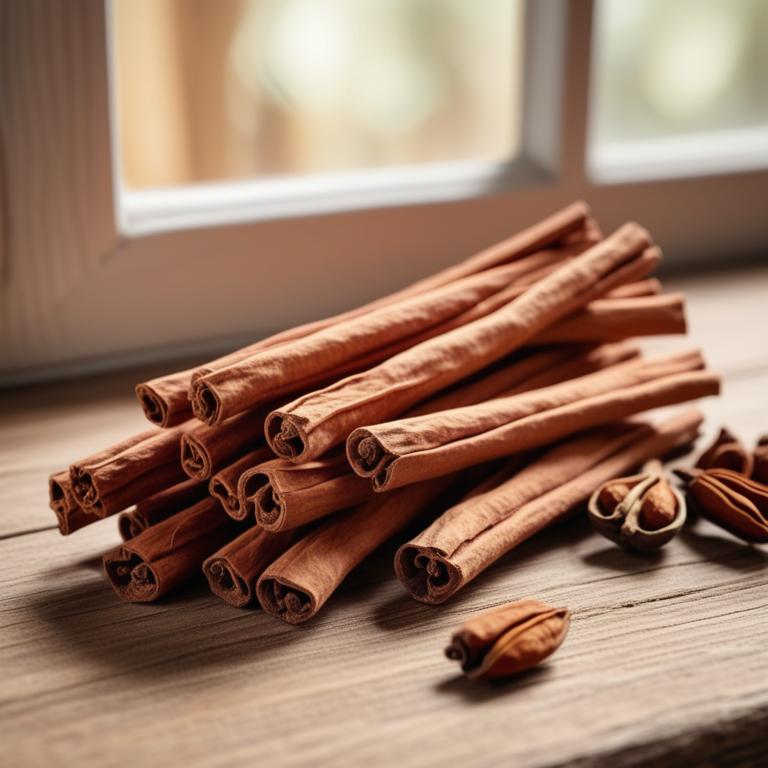
Morning Sickness: A Guide to Causes and Herbal Preparations

Vomiting: Understanding the Causes and Natural Remedies with Medicinal Herbs and Herbal Preparations
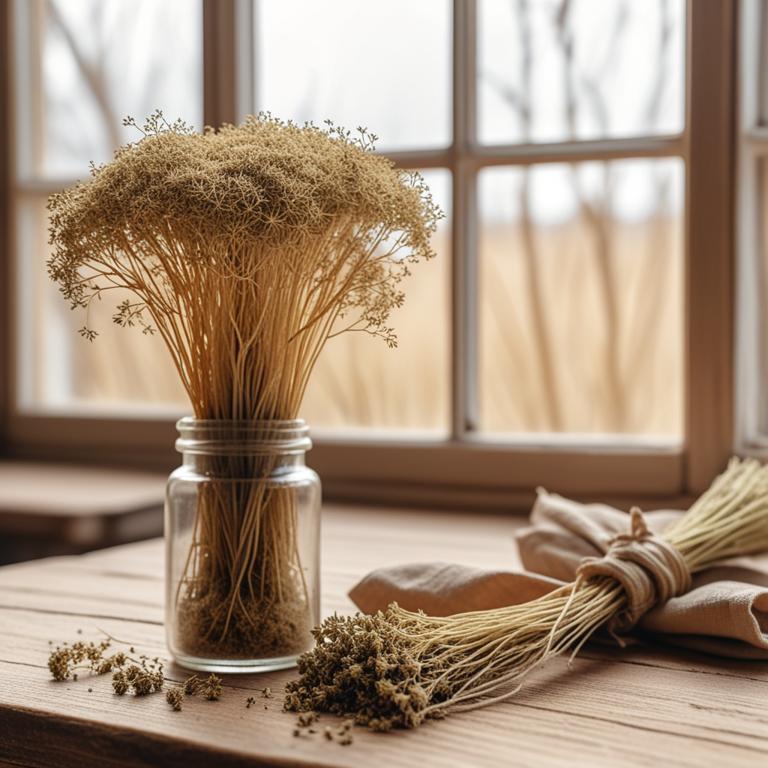
Gas in Stomach Causes, Symptoms, and Natural Herbal Remedies for Relief
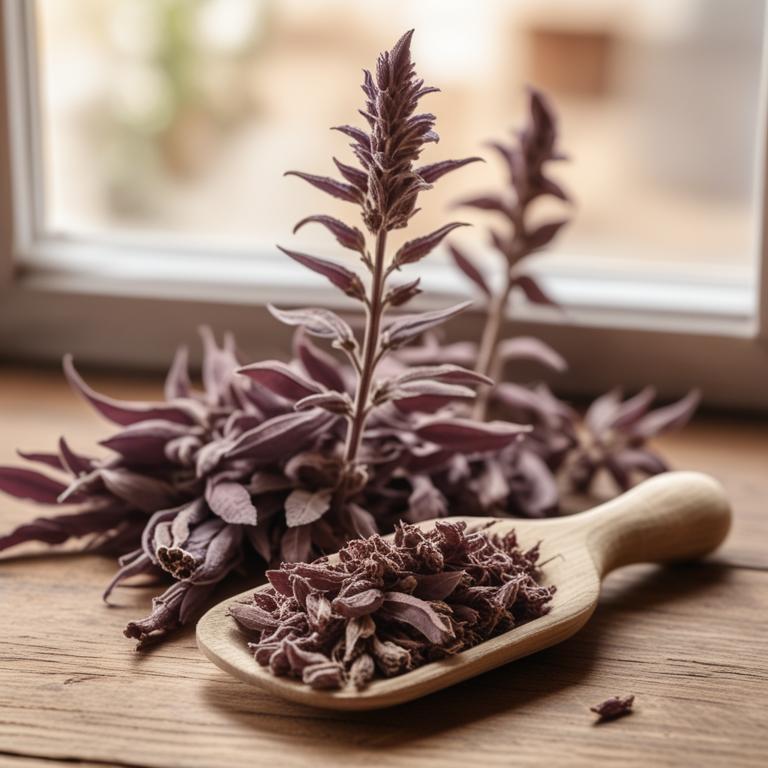
Overeating: The Causes and Medicinal Herbs for a Healthier You
